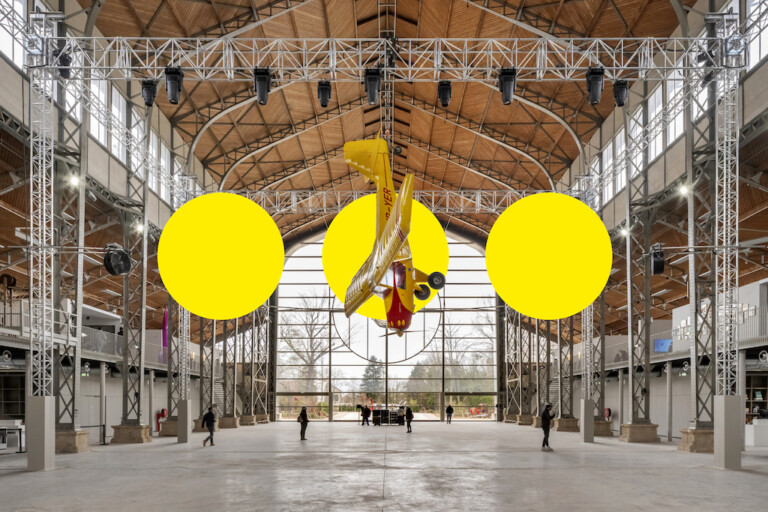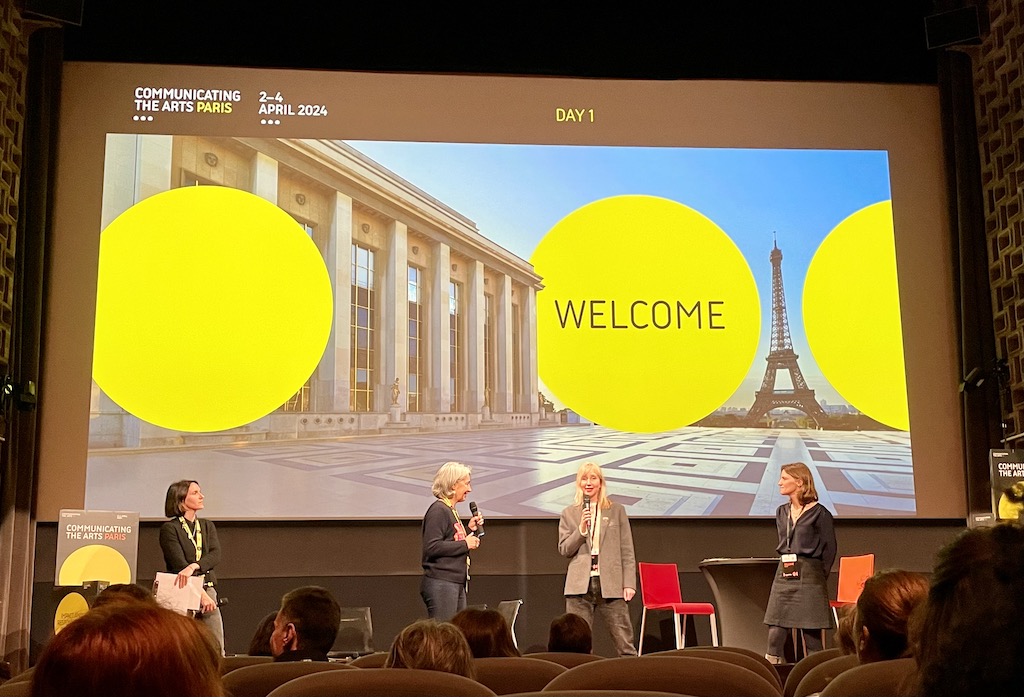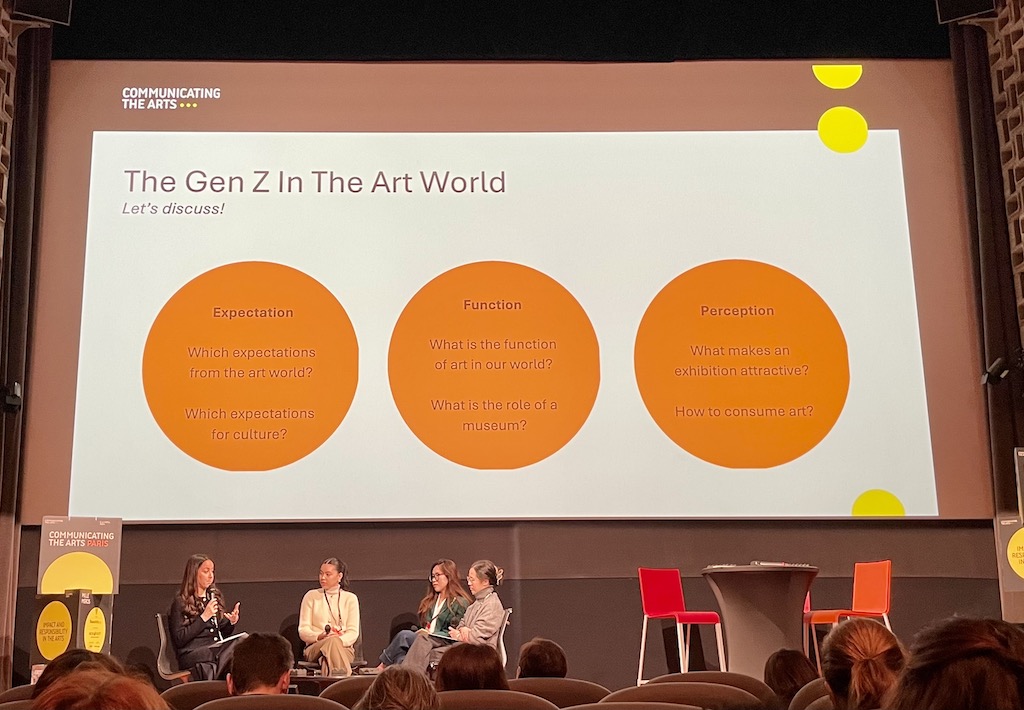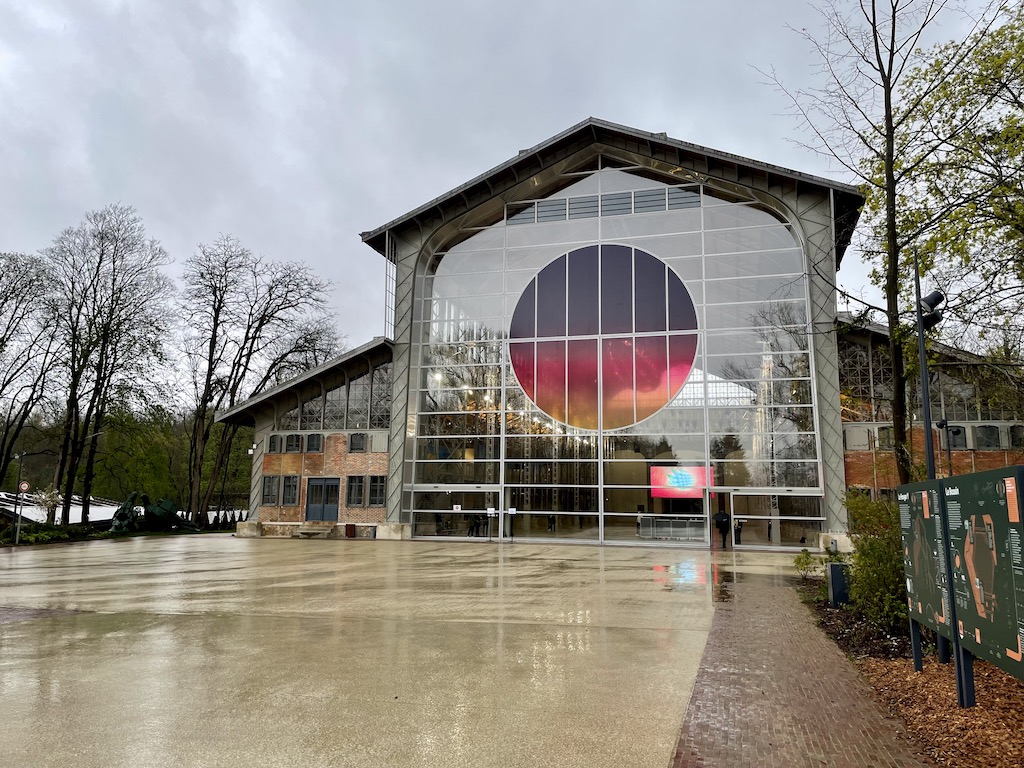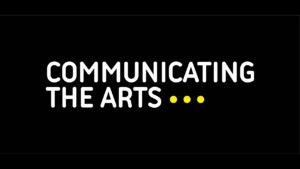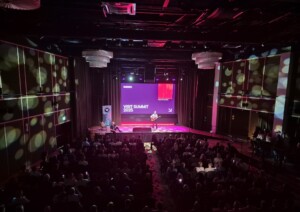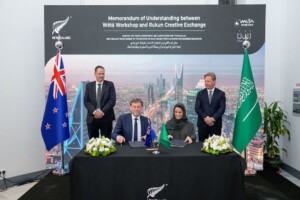by Mirabelle Bergere, Line de Mir
Communicating the Arts (CTA) 2024 took place in Paris from 2 to 4 April as part of #ParisMuseumWeek. The event brought together around 200 cultural leaders from around the world.
The theme: Driving Positive Impact and Social Responsibility
Under the banner theme “Driving Positive Impact and Social Responsibility,” the conference aimed to assist museum professionals in devising practical strategies that integrate arts and culture into broader societal and environmental contexts, reinforcing the sector’s dedication to responsible and sustainable development.
Hosted by Corinne Estrada and her team, attendees participated in a variety of activities. This included keynote sessions, hands-on workshops, guided tours, and networking. The agenda was designed to foster meaningful discussions and solutions-seeking.
CTA 2024 day 1: diversifying museum audiences and engaging Gen Z
Starting the day at the Palais de Tokyo, Mathieu Boncour, director of communication and CSR, shared the museum’s journey towards sustainability and inclusivity. As Boncour explained: “You need to shift focus from quantity to quality of visitors to achieve the objective for a more diverse audience.”
After her presentation about “The Gen Z Aesthetic”, Josiane Zhang, project manager at the Gen Z Observatory, was joined by Farah Houari, Tiffany Lam, and Sayoko Magron from the Gen Z Observatory for a dynamic roundtable discussion. Zhang discussed Gen Z‘s use of digital platforms to authentically express their identities, noting:
“Their aesthetic choices are emblematic of their interests, but also their values and things that they really want to believe in and the world.”
The discussion underscores Gen Z’s exploration of multiple identities and their advocacy for respectful engagement with cultural legacies. The importance of museums as safe spaces for innovation and personalisation of art experiences is also important.
Building upon Zhang’s insights, Deborah Marino, co-head of strategy & deputy general manager at Publicis Luxe, highlighted the importance of authentic engagement and collaboration with Gen Z. She advocates for meaningful dialogue rather than talking on their behalf. Gen Z thrives with collaboration:
“Let’s have a conversation with them, not talk for them,” Marino stated.
The importance of inclusion
Building on her experience, Nathalie Bondil, museum and exhibitions director at Institut du Monde Arabe, discussed the importance of inclusion, particularly of the LGBTQIA+ community, within institutions like museums:
“Inclusion also means LGBTQIA+ communities. It’s not a nice thing to have now; it’s a must. It is really a part of our mission.”
Wrapping up day one at CTA 2024 with a case study of the Royal Albert Hall and how they implemented their audience diversification strategy, Chris Denby from the Advisory Board of the Arts exposed the challenges of audience diversification. He explained that:
“Perhaps the most important thing you can do as an organisation if you’re trying to achieve audience diversification is to set a very clear, simple, and ambitious goal. And you can rally everything else around.”
Diversifying the audience is a long-term commitment that needs authenticity to build trust and genuine connections. Denby added:
“Your efforts at achieving audience diversity cannot be a check-the-box exercise. It requires a degree of authenticity that is comprehensive of everything that you do in your organisation.”
Throughout the day, authenticity and collaboration were highlighted as cornerstones for museums to thrive.
See also: CTA 2023: exploring the intersection of arts and technology
CTA 2024 day 2: social and environmental sustainability
The day began with a talk by Sonia Winner and Paul Westlake from the Cleveland Museum of Natural History. This was followed by a roundtable.
Natural history museums play a crucial role as trusted guides in raising awareness and sparking action on environmental and social issues. The conversation stressed the importance of fostering curiosity and offering reliable information. Gretchen Coss from G&A noted: “Curiosity is the best way to get people interested in learning more.”
The importance of promoting social sustainability was later discussed. Artist Chidi Nwaubani, founder & lead creative of Looty.art, shared insights into the problematic history of museums and their role in displaying stolen cultural heritage. He introduced Looty.art and discussed his project to digitally repatriate the Rosetta Stone back to Egypt, marking a historic moment in digital repatriation.
Anne Eschapasse from Musée McCord Stewart and Anne-Solène Rolland from Musee du Quai Branly – Jacques Chirac explored themes such as museums’ responsibilities as guardians and the significance of collaborative engagement with indigenous communities. They also spoke about the broader societal impact of repatriation efforts.
Emerging technologies
The afternoon session focused on experiences and emerging technologies. Pigalle Tavakkoli from the School of Experience Design explained how museums need to “move audiences from being one-time visitors who just come and passively use the objects and then leave to (…) actually move them emotionally so that they form unforgettable memories. We can capture their hearts and minds and start to build long-term relationships with them.”
Offering insights on transforming passive engagement into lasting memories, Tavakkoli shared tips on understanding the audience’s motivations beyond demographics, collaborating with artists and scientists, and engaging the audience beyond traditional settings.
Looking forward, experts from gaming, music, and other creative industries discussed how through creative partnerships and forward-thinking approaches, these industries are leveraging their influence to inspire action and foster a more sustainable future.
CTA 2024 day 3: sustainable practices for museums
Starting outside Paris at Hangar Y, the final day tackled integrating sustainability into museum operations. Examples from various museums showcased efforts to prioritise sustainability, engage stakeholders and ultimately embed sustainability into museum operations and values, despite the inherent complexities.
Frédéric Jousset, president of Hangar Y and Art Explora, shared insights into Art Explora’s mission of democratising arts and culture. Initiatives such as mobile museums, educational programs, and awards for innovative cultural projects aim to broaden access.
As part of the Art Explora Festival, he also discussed a collaboration with the Louvre Museum. This was a project to create a digital museum aboard a boat, bringing art to coastal communities around the Mediterranean.
The power of culture
Annesofie Norn from the UN Museum highlighted the power of popular culture and dialogue in catalysing climate action. The UN Museum shifted from traditional exhibitions to leveraging cultural experiences like football, comedy, and music. Norn emphasised:
“If you want to engage people in taking action, the most feasible and strongest way to do it is to go where people already are. We really need to think about how we can use different popular cultural experiences.”
Culture possesses the ability to stir people’s hearts and minds.
The conference concluded in Paris at the Centre Pompidou with a keynote session by Laurent Le Bon, president of Centre Pompidou. He unveiled the institution’s international strategy for 2025 – 2030 during its refurbishment.
The event wrapped up with a guided visit of the Brancusi exhibition. There was also a networking farewell drink at Centre Pompidou, fostering connections and reflecting on the enriching discussions and experiences shared throughout the conference.
